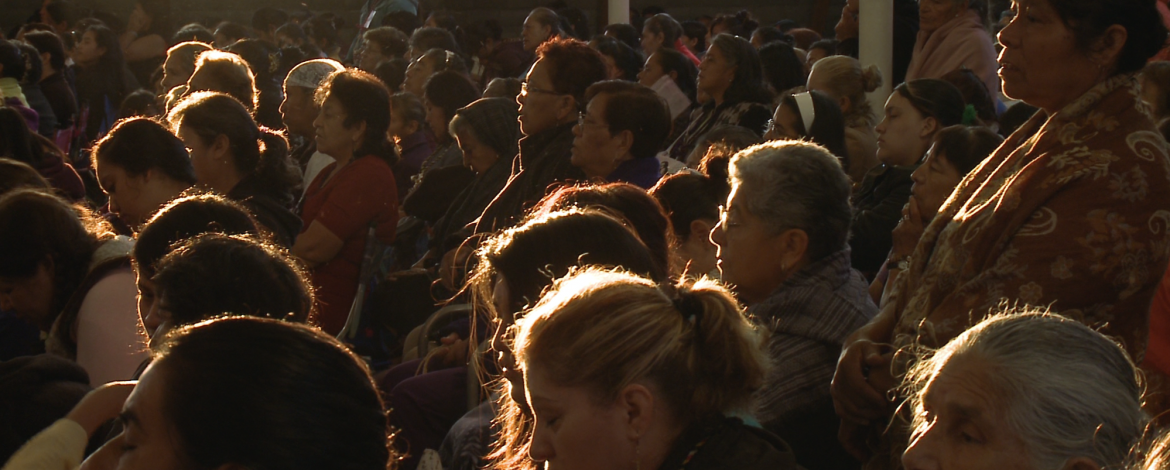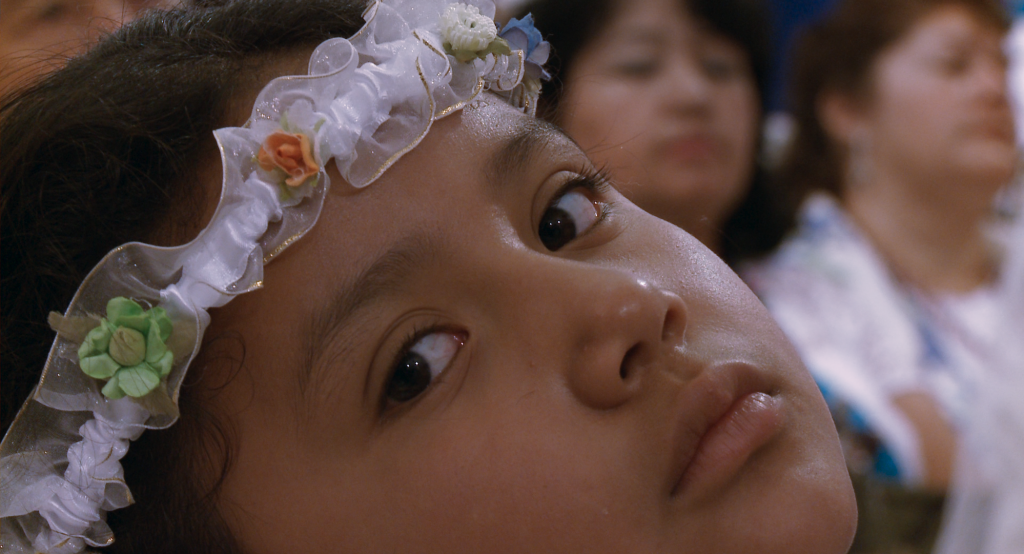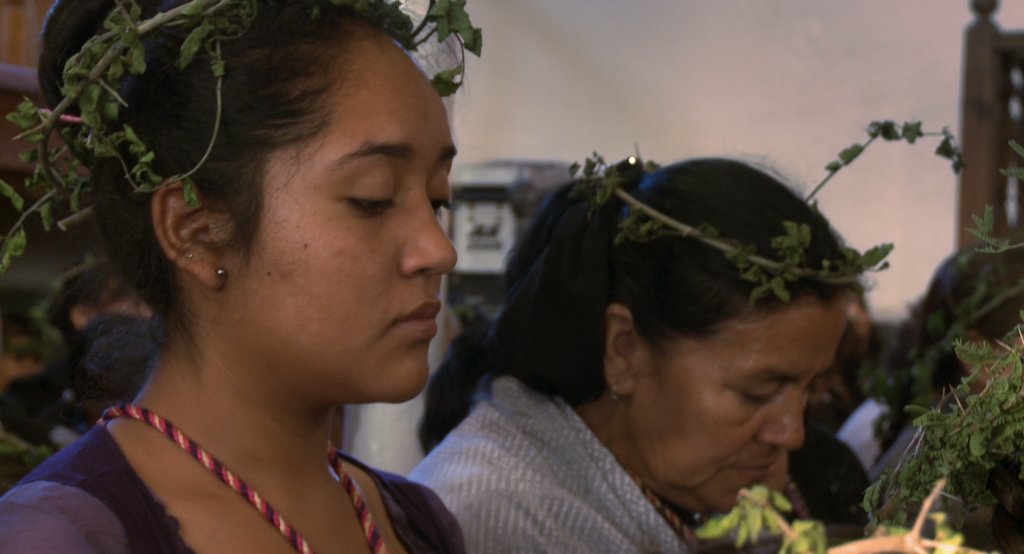

With Retiro, director Daniela Alatorre asserts the strength of women amidst a patriarchal society that holds gender inequity as the norm. Spotlighting three generations of women who take part in a one-week Catholic women’s retreat, Alatorre comments both on the reactions of different women in the face of cultural oppression, and on the continued power of female solidarity.
The retreat serves as a pilgrimage of sorts for the women involved—a chance to journey into a space far removed from their male dominated households. Several difficult questions and hard truths are put forth almost immediately, as the women begin to acknowledge the subordinate role they’ve been placed into both by their husbands and by the society in general. When they got married did they, for example, consent to sex whenever their husband pleased, whether or not they were tired, or menstruating, or otherwise uninterested? Do men and women garner the same respect even in their own households? Can we consider men and women equal?
A fair number of audiences might be surprised to see how these questions are answered. The speaker leading the retreat claims women and men are not, in fact, equal, as the vocation of motherhood makes them more “human” than men (who are more “of the earth”). Here we become more aware that the sermon is being given by a man—he does not advocate for the women to break free from the stranglehold of patriarchy and assert their autonomy to the men in their lives. No, instead he urges the women to accept and appreciate their role as mother and wife, as they’ve been endowed by God with the holy gift of childbearing. Many of the women take well to these claims, setting up an almost “separate but equal” dichotomy that presents women as having a distinct role to play which differs from men but is similarly important.

It’s here that Retiro’s central dilemma becomes more apparent, specifically that a new generation might have different ideas about the “role of women,” perhaps as more than a functional cog in the family unit. The young granddaughter featured in the film serves as this theme’s representative—she thrives for independence. As a lover of pogs and horseback riding, she considers herself one of the boys, and is markedly uninterested in female fragility. The sermon at the retreat makes clear that women aren’t expected to receive much of an education past middle school; she begins high school with excitement and vigor, and soon becomes the student everyone else wants to cheat off, presumably because she’s doing so well.
With her character, Alatorre asks why women must accept an inferior societal role. Her grandma tells her she doesn’t like seeing her go out, telling her a woman should stay home as much as possible. But the granddaughter disagrees, noting that she might “have other ideas about life, about how life can be.” Much of her childhood, and that of her mother and grandmother before her, has been filled with individuals rationalizing inequity, affirming that men should dominate women. The girl’s mother reminisces fondly about her husband threatening her with a shotgun, warning that he’d rather kill her than have her be with someone else. Her apprehension is clear as she watches her mother lovingly describe being kidnapped and locked up by her father, appalled that she treats this as an act of love. A new generation can want more.
It’s unclear whether the retreat, and those of its ilk, would inspire such desires within the women in attendance. While the regressive aspects of the sermons are clear, the retreat still undoubtedly invigorated the women present:
Here I have no husband, no kids, no brothers, no sisters. It’s all about me, about loving myself. Here, I love myself.”
When women are brought together and are able to relate to one another’s struggles, they begin asking why they’ve cast themselves aside. They question why they’ve allowed themselves to feel worthless for so long. This is the power of female solidarity that Alatorre is highlighting; regardless of the context, women, when united, are a unique and powerful force. And this is a sentiment that all women, and especially mothers and wives, deserve to feel. Should these feelings only arise upon acceptance of a subordinate role in general society? As future generations might argue, no—patriarchy is not God’s will.
